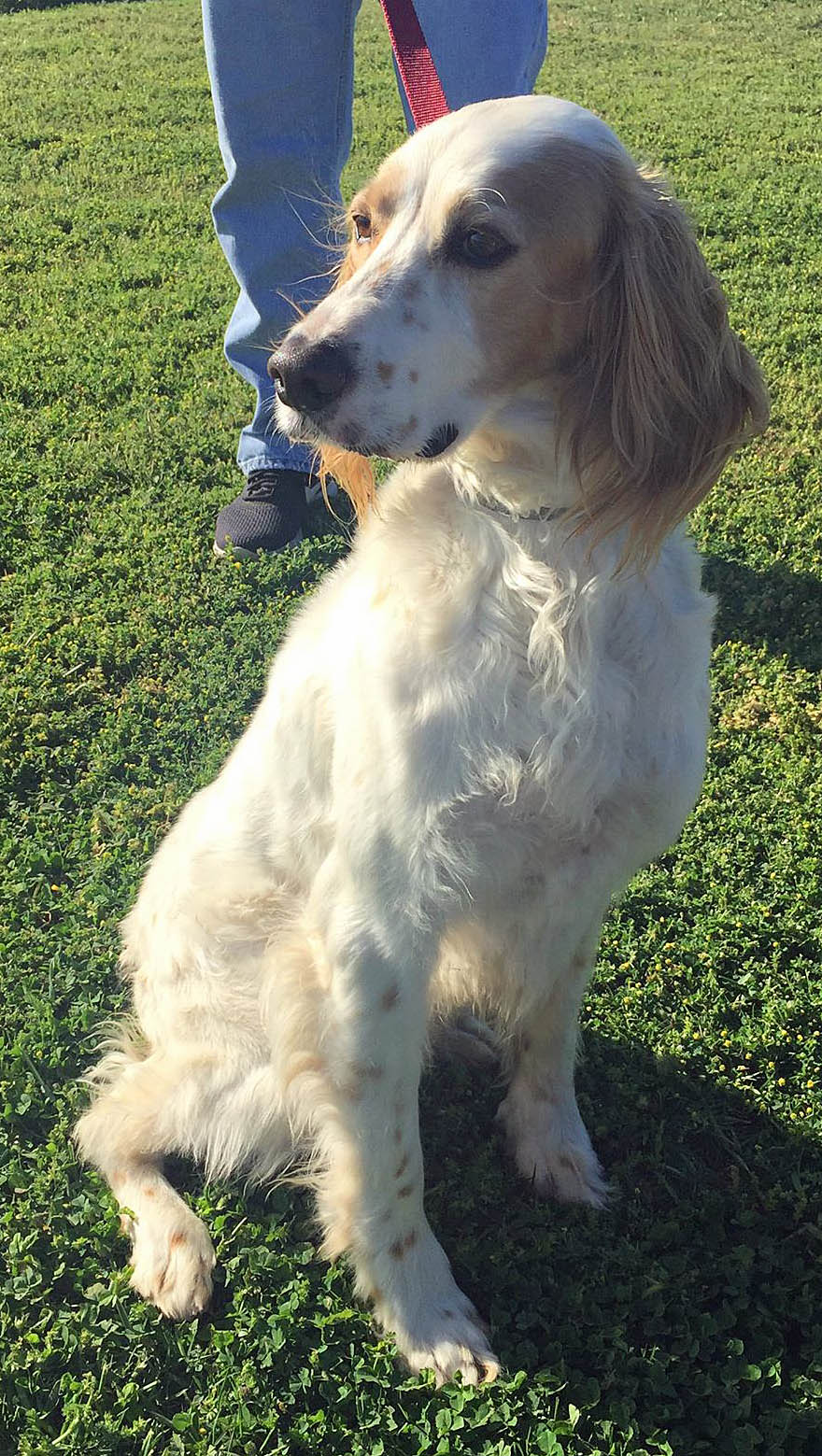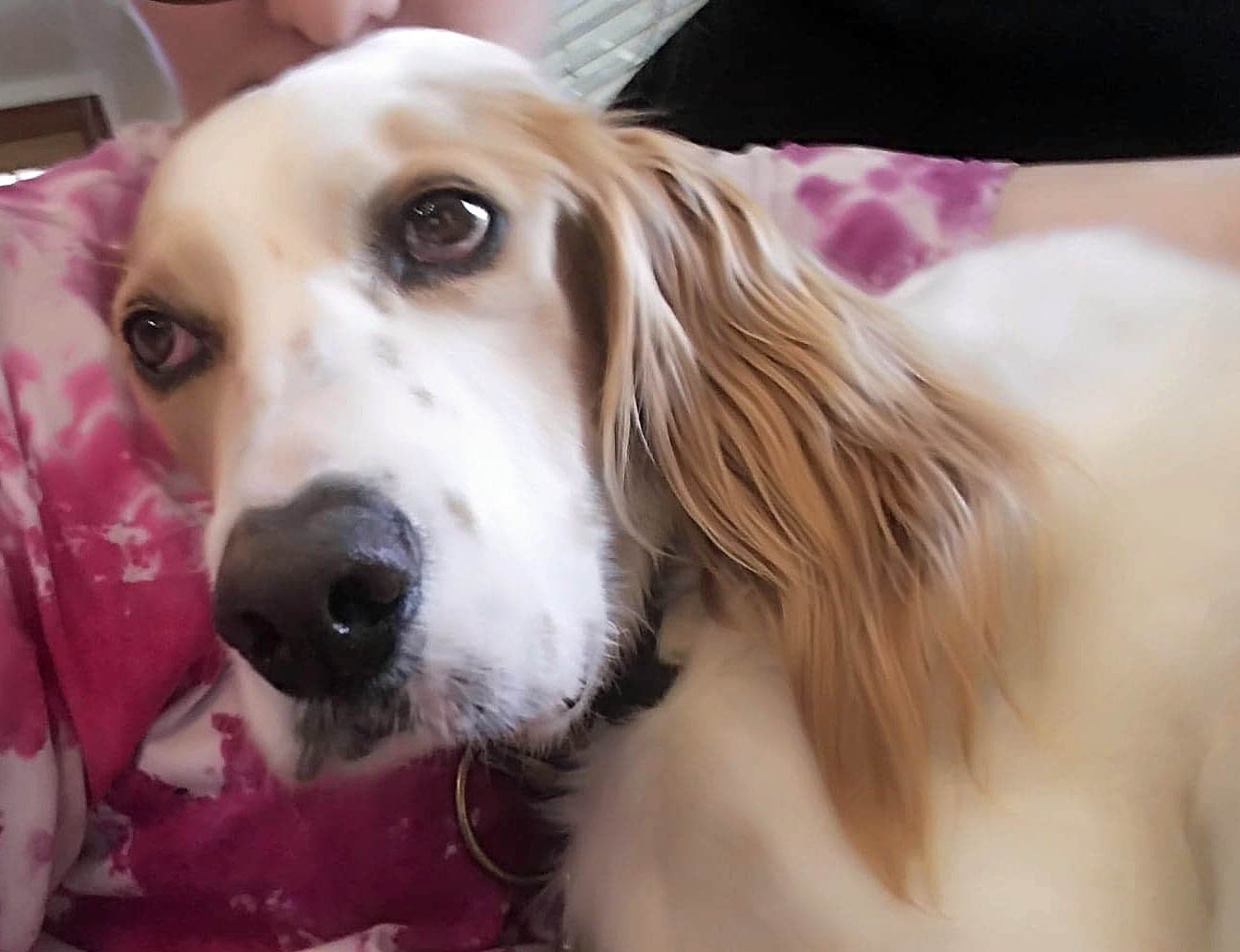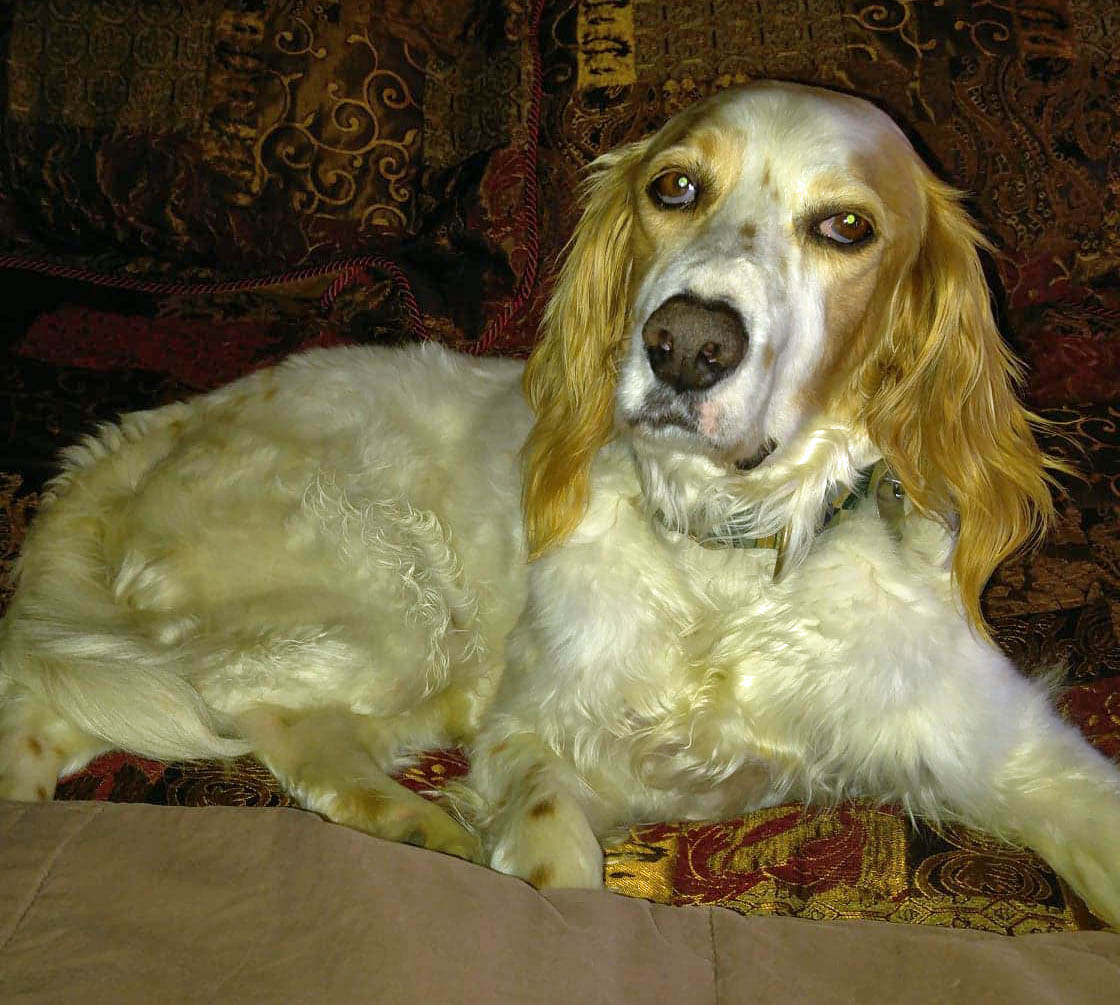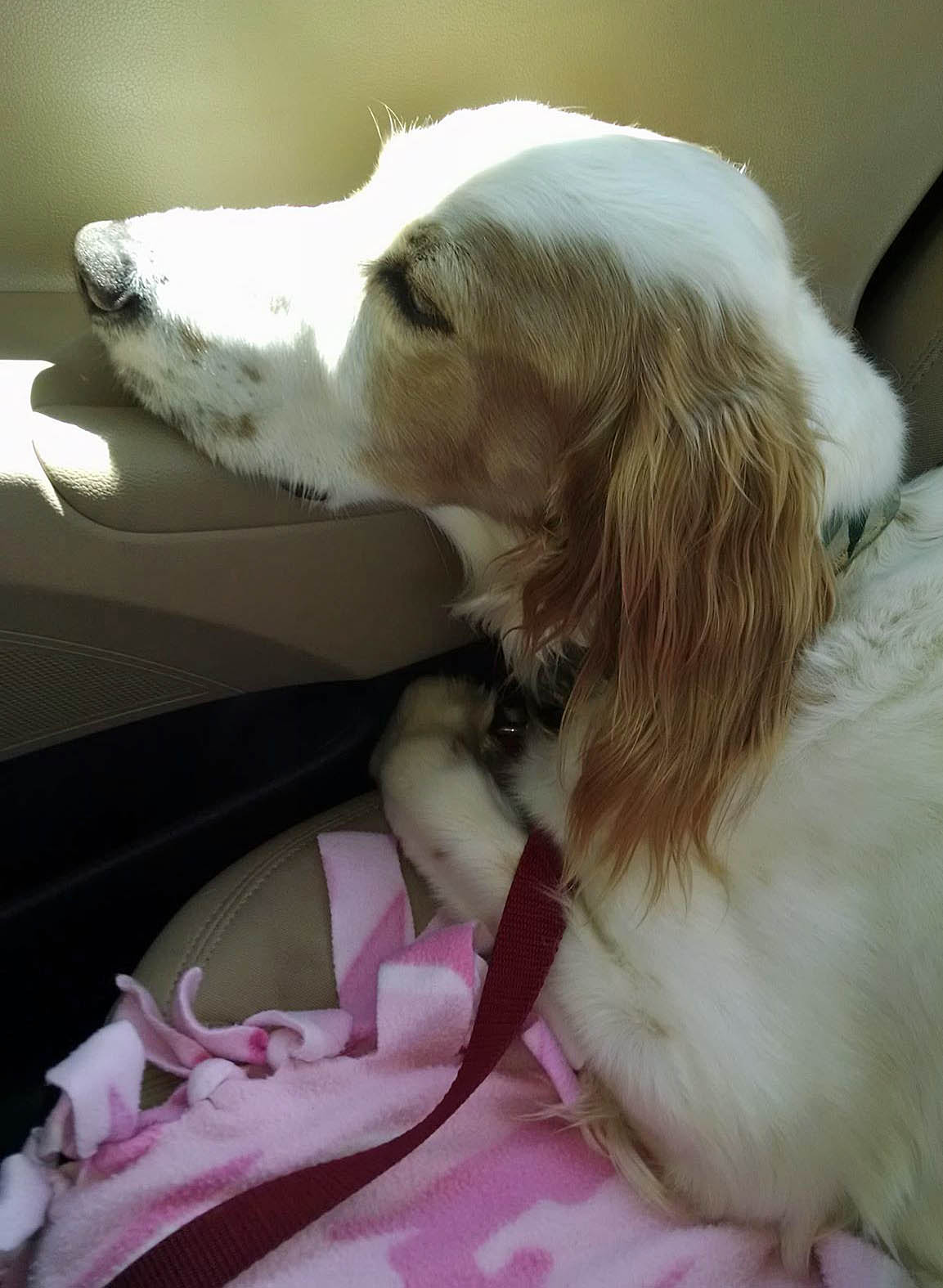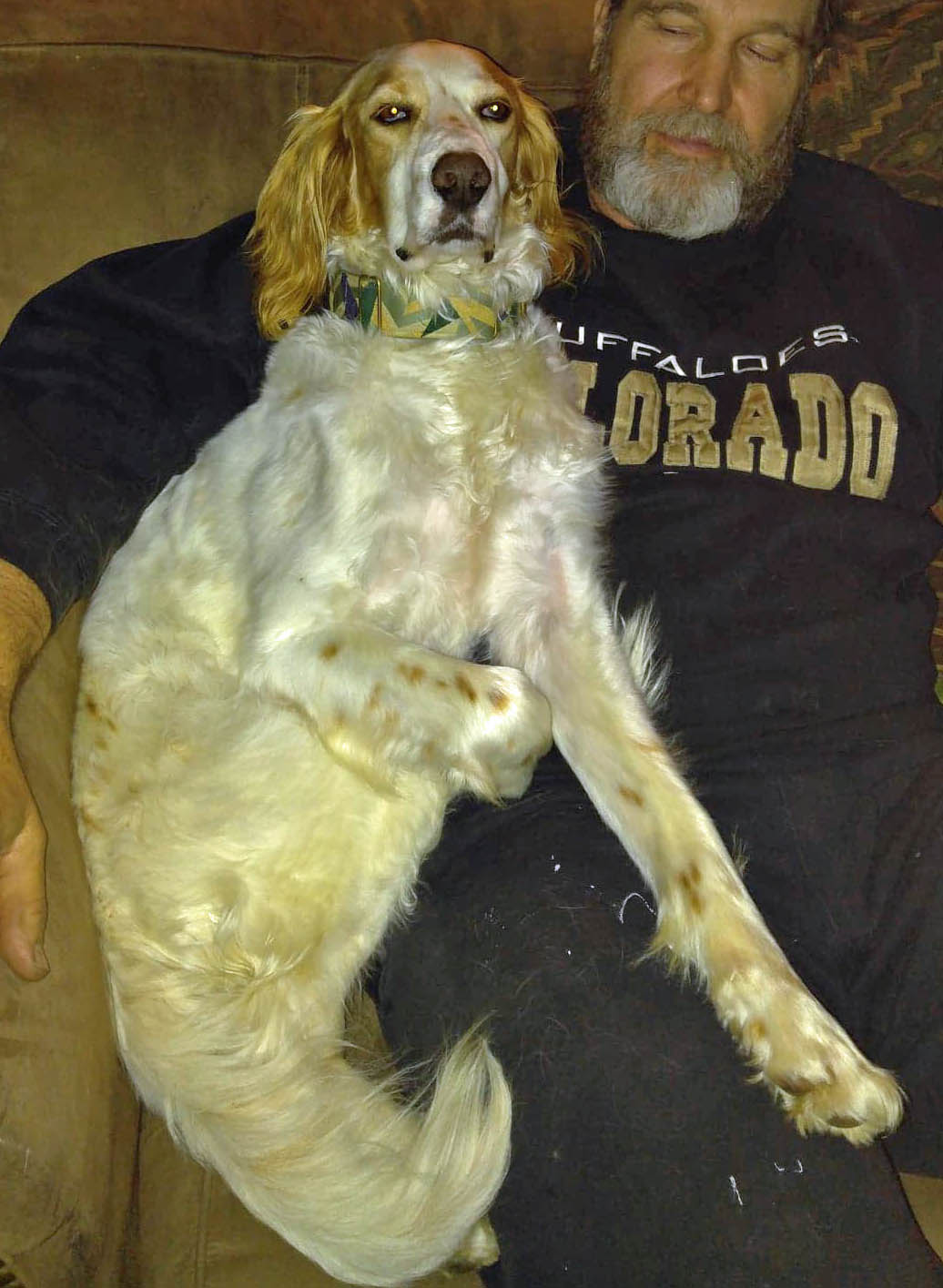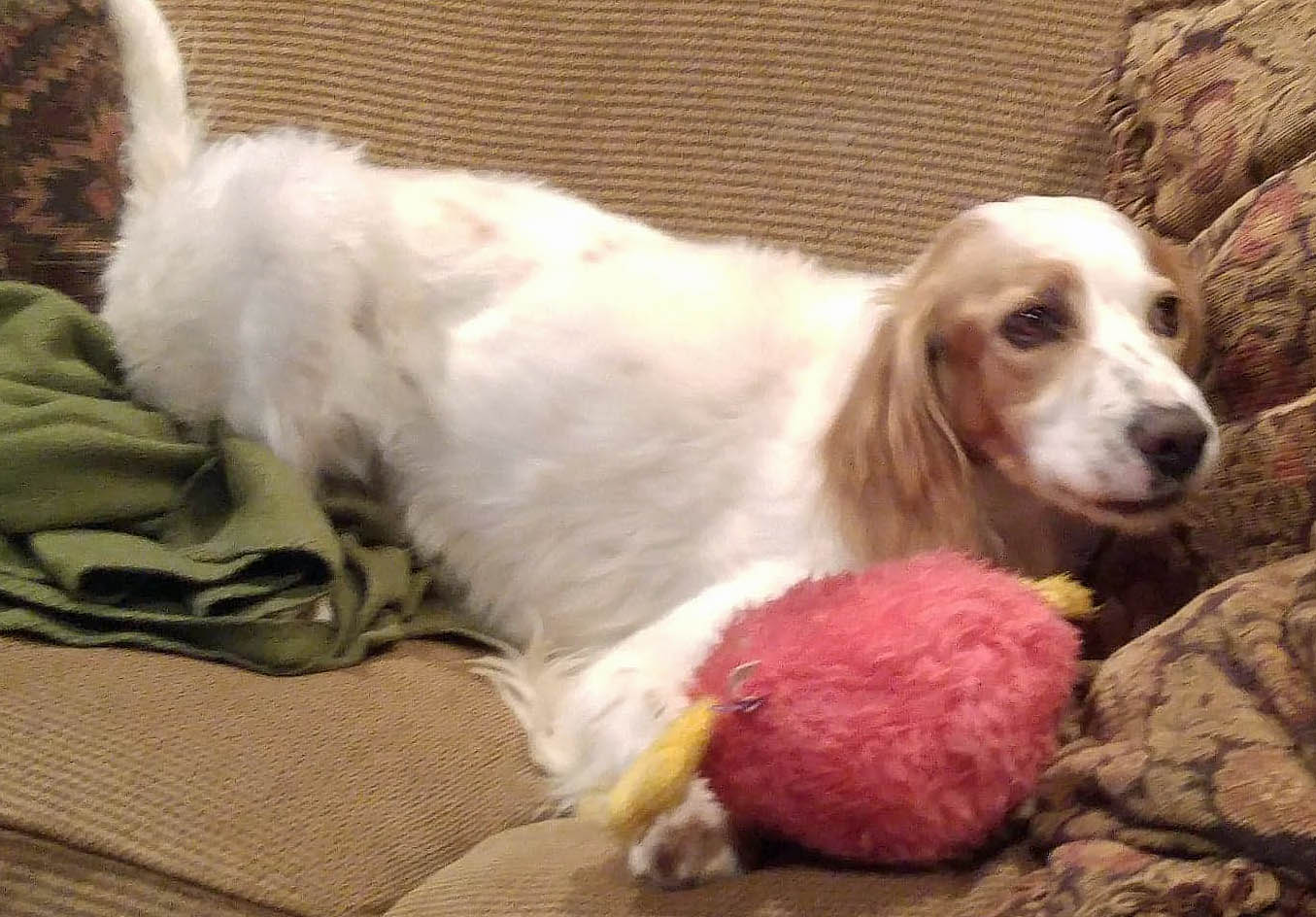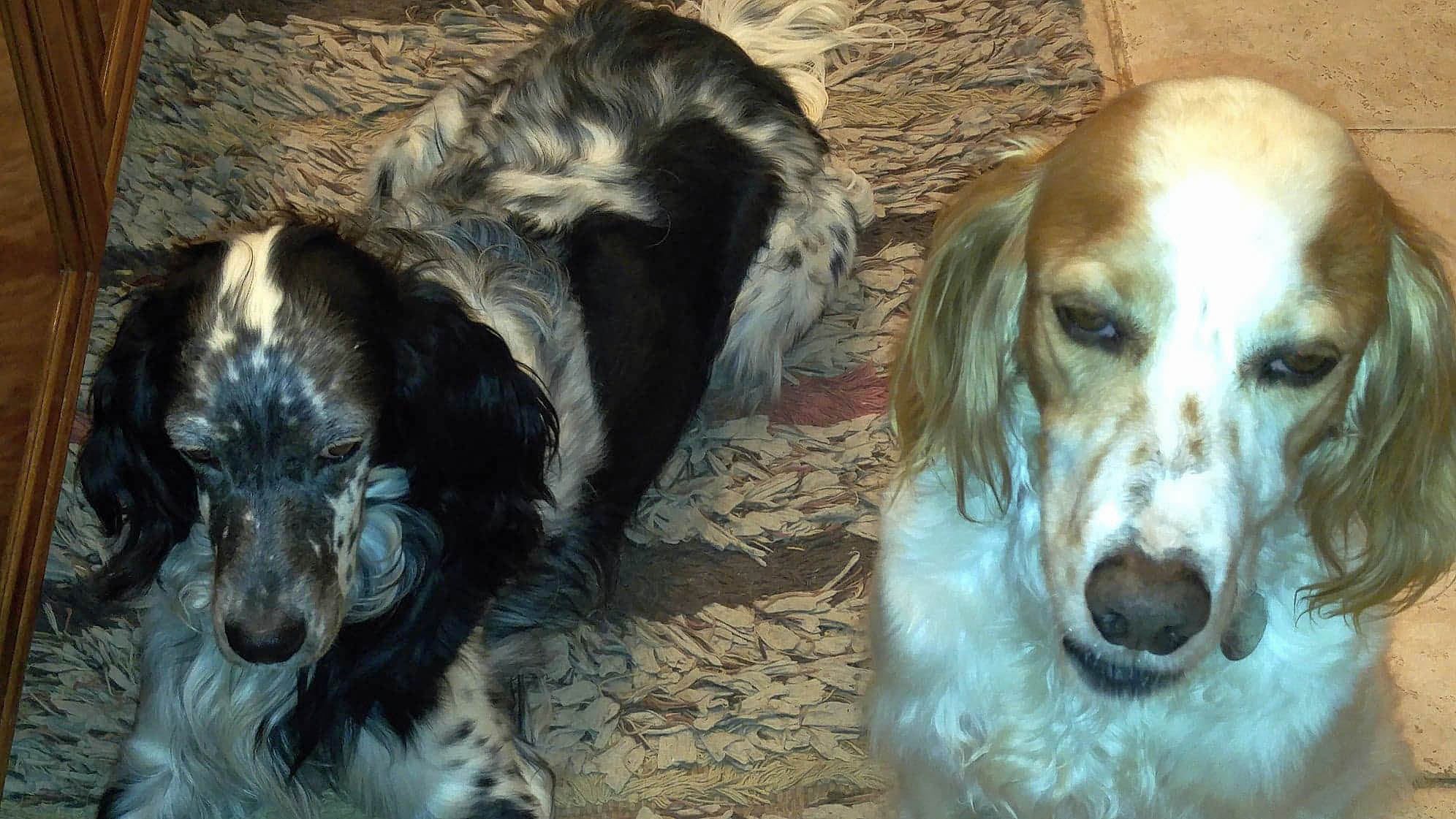BIRDIE AB#19-079 – M, 6 Years
Foster Dog Name: Birdie
Gender: Male, neutered
Age: About 6 years old Birthdate: 4/24/2013
Weight: 46.5 lbs.
Color: Orange Belton (golden caramel and cream)
Breed: English setter
Good with children: My grandsons have visited with Birdie (4 and 10), and he is so gentle with them, it's amazing. He has been perfect with both of them. We've had a lot of company and he's been great with everyone
Good with dogs: Yes, very. I was concerned with how he and our male setter would get along. They are doing great. Birdie knows when to back off. He is totally unconcerned when another dog sniffs around him. He is not at all aggressive nor is he overly submissive or an alpha male—he is just a mellow guy that wants to get along with everyone. Birdie will tend to lunge at small dogs when outside.
Good with cats: He is fine with indoor cats, but will lunge at and chase outside cats. He caught an outside cat and the cat was fortunate to get away with 8 lives of his 9.
House trained: Yes, he has not had one accident in the house. Neither has he marked in the house at all (one of my concerns with the two males). The few times he has been crated, he kept it dry.
Crate trained: No! The first night in our home, Birdie barked a few times and then settled down quietly till morning. The second night there was no barking. The third night he wouldn’t stop barking. I’ve tried since then, and he can’t seem to stand it. He’s just a mellow sweet dog, I hate to put him through it. He’s been sleeping in my daughter’s room on a doggy bed and doing much better there. I don’t think he could stay in a crate without being extremely stressed.
Socialization/training: At the vet’s office he was the perfect gentleman. He was scared but behaved very well when being scanned for a chip. He was polite with the humans, the dogs and a cat. We are working on sit and down. He will sit when the others do, but he needs a gentle hand on his hind quarters to encourage him to go down. He is smart and should learn quickly, and we will keep working on basic obedience commands. He does come to his name unless it’s his first time out in the morning. And that first exuberant run around the yard in the morning includes lots of non-stop barking. After that he goes out without the barking.
Leash trained: Birdie walks very well on a leash. When he starts to feel the leash tighten, he corrects himself. Taking him for walks is a real pleasure. He is interested in birds, but not overly so. Now the rabbit that ran across our path was a different story. He bolted after it so be aware that while he is good, he can only stand so much temptation and that was over his limit. I was so glad I had a tight hold on him. He was easily directed back to our walk and was a little ashamed of himself.
Behavior: When we got in the car for a ride, he started violently shaking. He didn’t do that during transport with us. He is very well-behaved, but the shaking shows how scared he is. I think he just needs to know he’s going bye-bye and not to some scary place. When Birdie does anything wrong and gets corrected, he stops immediately and is very contrite. (Well, except for the outside early morning barking), and then he watches me carefully to make sure he’s not in trouble. When he gets a hug or pat and a good boy, you can tell he’s relieved and happy. He really wants to please. He wants to be close to his people and if allowed will crawl up to take a nap on whoever happens to be sitting down. He is very calm and cooperative about having his nails cut and when I brushed his teeth, he looked at me like I was crazy, but he allowed it. I think he needs a teeth cleaning. He likes to play tug-of-war. While playing once, he accidentally grabbed my hand instead of the toy, but let go right away. He is so gentle.
Activity level: Birdie has his early morning exuberant run to burn off excess energy. His energy level after that is moderate. He does continue to run like a wild one, but he doesn’t do the incessant barking. He goes out, runs, plays with the other setters, chases birds, and then comes in to happily hang out.
Fence: I think a fence is always best for dogs that need to run. And Birdie needs to run. Our fence is a 5 foot wooden fence, and he hasn’t challenged it.
Medical history: Birdie is healthy, up to date on vaccinations, on heartworm and tick and flea preventative. I think he could gain a few pounds, and I think he needs his teeth cleaned sometime soon. He will be chipped sometime soon.
Foster comments: Birdie comes from Tulsa, Oklahoma. His owner took his greyhounds but left poor Birdie. I don’t know the circumstances, but I think he gave up a very sweet dog. He name was Bird Dawg. Bird Dawg, Birdie, or Danny, as my youngest daughter is calling him, is an almost perfect guy. He is sweet, gentle, and loving. He is very sensitive to correction and so anxious to please. His eyes follow his people, making sure all is okay, and he stays very close. He has wonderful gentle eyes, rimmed in black, and he has cute freckles on his nose. His ears and around his eyes are a warm golden color. His coat is as soft and fluffy as a rabbit. When Birdie runs, he looks like he should be in a show ring. It’s beautiful to see. He gets along well with the other dogs, the cats, and the people he’s met. He holds whatever he’s playing with in both paws, looking adorable. He did chew up a doggy bed, but I think it had a bedtime snack somewhere in the folds. Birdie waits to be invited on the couch by tentatively placing a gentle paw on your knee. I can’t stress enough what a gentle boy he is. This sweet setter just wants to be loved, and he will love you in return.
Adoption Fee: $300
Foster Location: Fort Morgan, CO
Volunteer transport can be arranged in the Continental US within a 1,000 mile distance between adopters & foster home. Typically, we are able to transport your adopted dog to within 2 hours of your home. *Dogs can be adopted outside the 1000 mile transport distance; however, adopters must be willing to either fly their adopted dog, drive to a location within the 1000 mile transport range, or make independent transport arrangements for their adopted dog. Transports to far West states, from Eastern states, may have additional restriction
